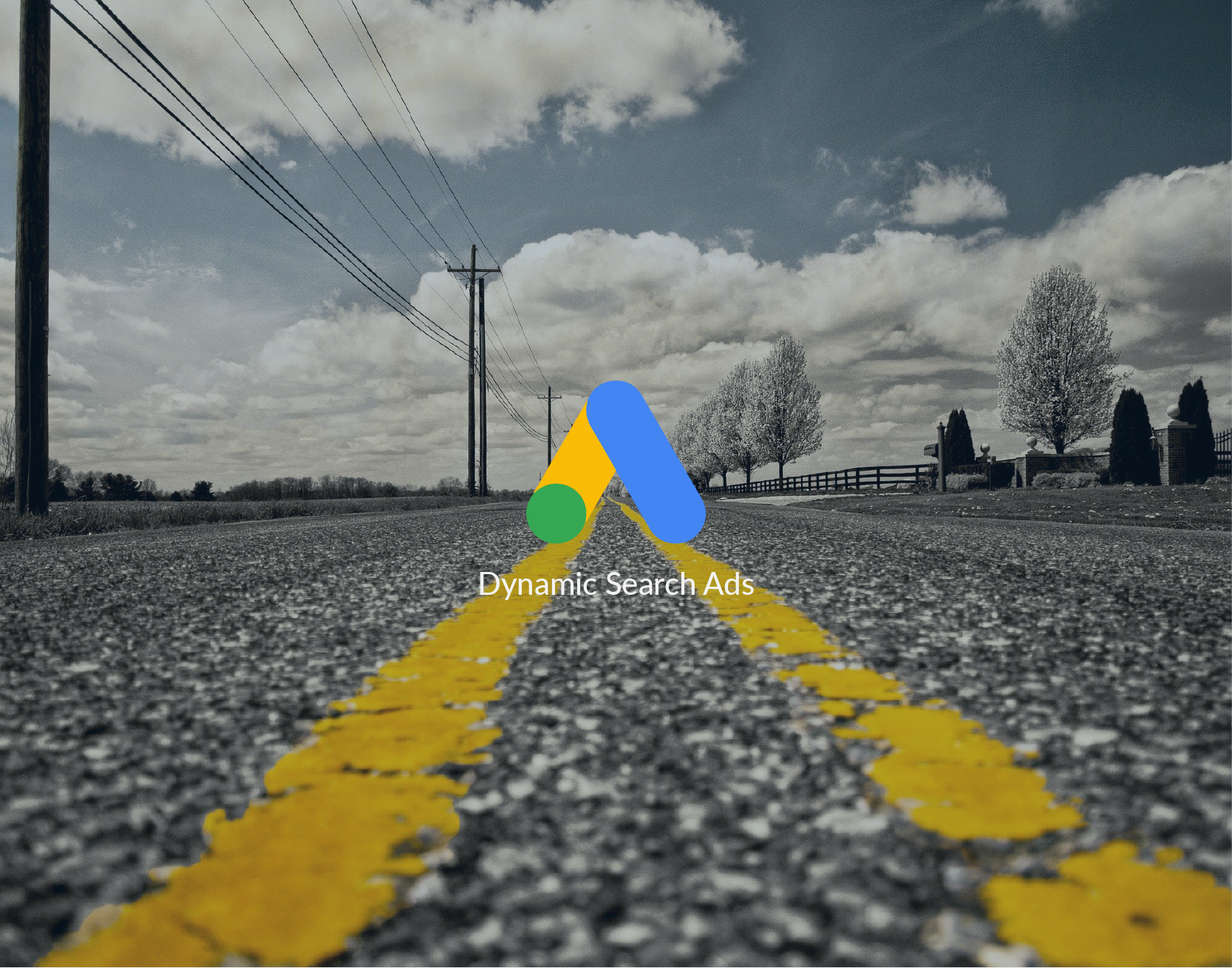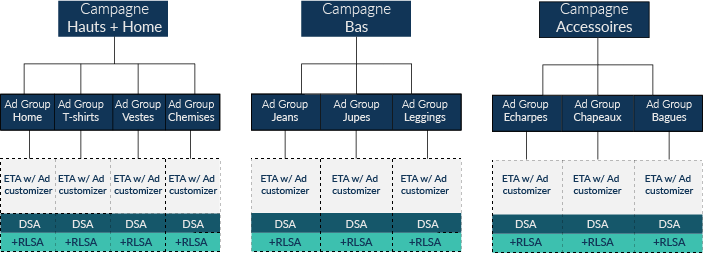By selecting the right goals, messages and budgets, you can bid on certain strategic keywords to target potential customers at the right time in answer to their search. The platform is fairly simple to use and is suitable for any type of business.
However, continuous management and optimisation of keywords can seem like a time-consuming procedure, particularly if you don't have much bandwidth. A site with a wide range of different products, like a marketplace, requires work on numerous keywords. What can be done to solve this problem? In addition, it's often difficult to pick up all internet users' searches and to have a perfectly granular vision of the keywords.
We would like to present Dynamic Search Ads, the Google solution that automates SEA campaigns!
What are Dynamic Search Ads (DSA)?
DSA by Google are campaigns that generate their own keywords. How? By analysing your website to spot the most relevant terms. After that, if an internet user carries out a search including a title or a term that appears on your website, then Google will display the right landing page and generate the most useful title.
This means that the titles of ads, but also the landing pages, are generated from the website. This guarantees relevance. All you have to do is enter the description of these ads.
Not only do DSAs save time, they also ensure maximum coverage of the keywords appearing on your website. They also offer a means of bidding on a wider range of keywords.
Why use Dynamic Search Ads?
This functionality has a number of advantages:
- A double saving in time, partly because you don't have to do all the work usually associated with the keywords (particularly if there are lots of them) and by bringing new opportunities to light rapidly.
- The dynamically generated titles are relevant because they are drawn directly from your website from internet users' searches.
- You keep control of your ads by choosing the pages, products or offers that will be highlighted. This allows you to exclude certain URLs.
- You increase the number of visits to your site by targeting keywords that are not always identified, but which represent areas of opportunity. DSAs make it possible to create traditional SEA strategies, particularly with regard to keyword coverage.
How should DSAs be configured?
When you're creating your Google Ads campaign, just select the “Dynamic Ads” option. Next, you need to configure them.
This is the point where you choose which pages will be targeted by the DSAs. You have several options to choose from:
- Category: to target all the pages you're currently running search ads against.
- Content: to target URLs containing a particular string of characters.
- Page feed: to target pages more closely by adding custom labels to some pages.
- Exact URLs: to target specific pages.
Dynamic Search Ads are displayed in the same way as traditional Search Engine Advertising. In addition, they can compete with each other.
Dynamic Search Ads: our best practices and recommendations
We recommend that you follow the best practices shown below to exploit the full potential of DSA pages:
- Avoid using DSAs on pages that you modify regularly, to be sure of offering the most relevant content possible.
- And don't give up on traditional campaigns, they should still be your first choice, particularly in relation to strategic keywords linked to your business.
- Don't forget to configure your negative keywords to avoid pointlessly attracting too much traffic.
- Ensure that your site has relevant and well written HTML page titles. The titles generated by the ads and also the searches which are targeted are dependent on the quality of the HTML page titles.
- Make sure that your site is accessible: as Google generates the ads from the content of your site, it must be explorable (which is not always so if its content is mainly accessible by subscription, for example).
Now you know all about DSAs Definitely a strategic tool, but to be used with moderation to keep control of your campaigns. To find out more about our recommendations and best practices, contact us!






